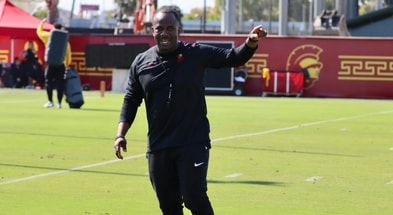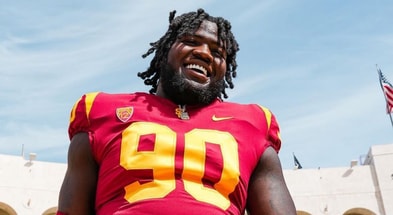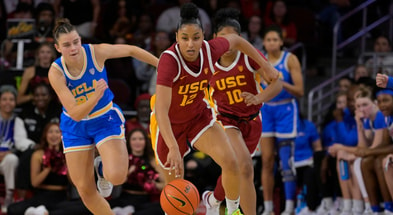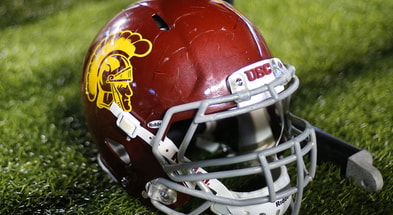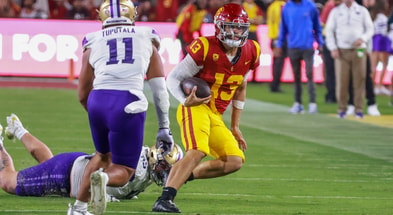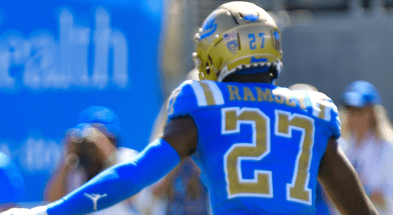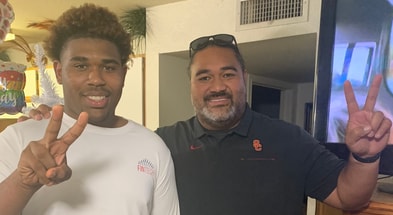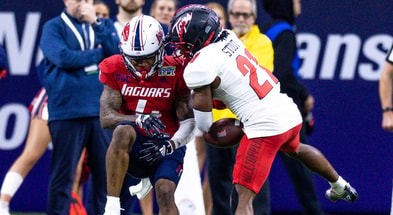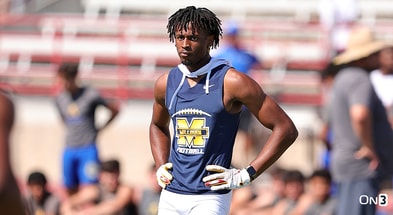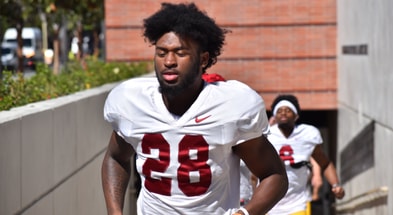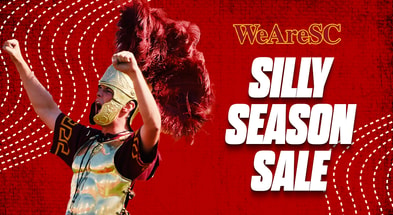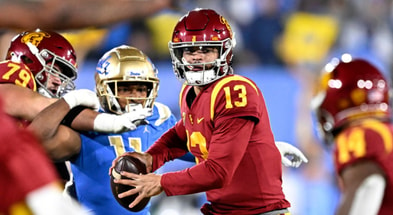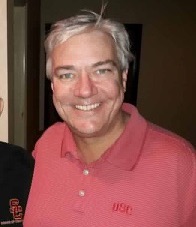Trojans see Robert Stiner and staff setting the stage for 2021 success
USC head coach Clay Helton is consistent when talking about goals for his program and how the Trojans will always be measured in terms of championships won. Using that standard, last season can't be considered a success and various changes were understandably made. All eyes will be on offensive line coach Clay McGuire and how much of an impact he can have on the USC running game this fall. And several incoming freshman and transfers on both sides of the ball will be expected to step in and provide instant results. But the person responsible for the biggest change between recent USC teams and this 2021 version might have already produced his results, or at least a significant percentage of them.
Robert Stiner was not a name known to many, if any, USC fans when he was announced as the Trojans new Director of Football Sports Performance. He came to USC after three seasons as the assistant director of football strength and conditioning at Notre Dame, so Trojan fans were aware of some of his work even if they didn't know exactly who was responsible.
After the past few seasons, it's understandable if any talk regarding USC winning the offseason championship or getting primed for a championship year is met with some skepticism. But the coaches and players don't share that a week away from the start of fall camp. Stiner has had a collective four months with the players going through winter and summer conditioning, sandwiched around spring ball and players are raving about the changes he's implemented, the results he's produced and the mentality he's helped install.
"He's the best," quarterback Kedon Slovis said of Stiner. "I have too many good things to say about him."
Slovis is one of the players to see a fairly significant change to his body this offseason. He said his weight hasn't changed too drastically, but his body fat dropped from 13% at the end of last season to around 7 or 8% now.
"That's all credit to Stiner," Slovis said. "He's great. I love what we do."
It's part exercise selection and part pacing that stands out to Slovis.
"Everything we go through in the weight room is quick," he said, adding that instead of staying at the squat rack for eight sets of squats, it'll be just three or four sets and then moving on to something else, all done quickly. "I feel like we get through so much more in a short period of time. It's so much more specific. I don't know why, but after, you feel like you got a cardio workout in, too. So I think, overall, I love it. I think it's great. As much as it hurts and it's painful, I come back wanting more every day."
Slovis said he's taken to writing down all the workouts so that he can come back to them whenever the team has some time off and he wants to do them on his own.
Helton also raved about Stiner during Pac-12 media day on Tuesday. He credited USC athletic director Mike Bohn and chief of staff Brandon Sosna for allowing him to go out and get whoever he wanted to fill that position.
"In talking to several people, interviewing several people, I walked away and said, you know what, there's great trainers that are out there, but there's also great trainers that provide great culture," Helton said. "It's not just about being a great trainer. It's about providing a great culture and a great culture system. That's what Bobby, coach Stiner, provided for us. Him and his staff...Under Bobby's leadership, we've made tremendous strides as a team and culture under his leadership."
Wide receiver Drake London, like Slovis, will be a team leader for the Trojans this season. He also praised the changes Stiner has implemented.
"Coach Stiner has been amazing to us," London said, acknowledging the physical changes in many of the players' bodies this offseason. "It's not just changing our bodies, but changing our mentality. He's taken it upon himself to help us really realign us, and make sure that we all have one goal in mind of this season. He's been a blessing for our program."
London said everything with Stiner, and now the USC program, begins with competition. That competition is never-ending and knows no limitations.
"Everything is a competition, no matter if it's on the field or off the field," London said. "We're talking about academics, making sure you're getting your calories every day, weigh ins. Everything little thing that you can think of that revolves around football, revolves around us, is a competition. He makes it known and he sends that message to compete in everything we do."
That mentality has exploded outside of the weight room and it's one that builds on what offensive coordinator Graham Harrell preached to his players when he arrived, asking them to hold each other accountable in their effort and participation at all times.
Slovis recalled an offseason two years ago when he was a freshman where he would tell his receivers he was going to go throw and a handful would show up. He was just a true freshman having finished his first semester as an early enrollee, so his status as a team leader wasn't anything close to where it stands now, but it's an example of players passing up an opportunity for extra work.
"Now if I tell them I'm going to throw, every single receiver on the team is out there throwing with me," Slovis said. "That's something that, regardless of talent, that's something you want from your receiving corps. And I think that's something that's very exciting and something honestly we haven't seen. I feel like this group is a really good group in terms of how they want to work."
Slovis said the extra work and vocal push from players extends to the defensive side of the ball and a number of players have stepped up in that leadership role and demanding more from teammates.
"I think it's just the culture we built," Slovis said, adding that it's not all the way finished yet, but has grown a lot over the past six months. "If you're not there, what are you trying to contribute to the team? I think we're willing to have those conversations with guys who aren't there. Obviously it's not mandatory; it’s just trying to work. But if you’re not there, then what are you doing here? You’re not trying to get better? That’s the conversation we have. We talk about holding people accountable all the time and it should come from a place of love. It’s not easy to do. It’s hard. And you also have to be willing to be held accountable. It’s not easy to have someone tell you that you’re not doing something right. I think that’s something we’ve really worked on as a culture. Coach Harrell talks about it all the time. It happened occasionally here and there, but you’re starting to see it, especially the young guys who were there when it was being built, get older, you’re seeing it start having a ripple effect."
Players have said they can't even compare this offseason to last, considering how much time they spent away from the football facility and on their own, trying to use whatever equipment they could find in order to progress through the offseason conditioning regimen. There was an inability to establish consistent throwing sessions or workout routines. All camaraderie built in the weight room was unattainable and ultimately there was a rushed return to the field led by an abbreviated camp that didn't come close to approaching the typical run up to a season. Most programs had to deal with some sort of adjustments last offseason, but USC was one of the programs affected the most significantly.
It's impossible to tell at this point how much of an impact this offseason work will have on the field and nobody in the USC program wants to consider offseason positivity a mark of program success when they all know the only way it's measured is whether or not they're the ones holding up, at the very least, a conference championship trophy in December. But when it comes hitting the right offseason notes needed for a successful season, the Trojans seem to be moving in the right direction.
